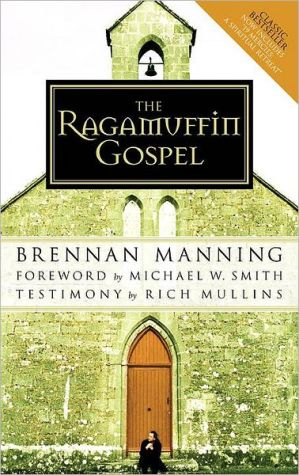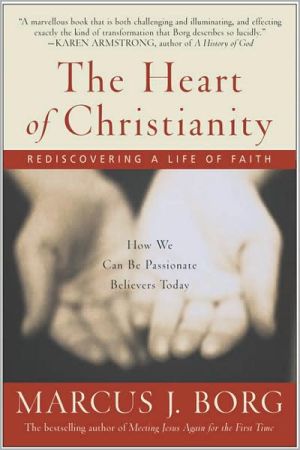What's So Amazing About Grace?
In What's So Amazing About Grace? award-winning author Philip Yancey explores grace at street level. If grace is God's love for the undeserving, he asks, then what does it look like in action? And if Christians are its sole dispensers, then how are we doing at lavishing grace on a world that knows far more of cruelty and unforgiveness than it does of mercy? Yancey sets grace in the midst of life's stark images, tests its mettle against horrific "ungrace." Can grace survive in the midst of...
Search in google:
This is the unabridged audio download edition of Philip Yancey's Gold Medallion Book Award winner and Christian Book of the Year. It insightfully explores grace, the most powerful force in the universe and our only hope for love and forgiveness. Read by Bill Richards. 10 hours and 45 minutes.
Chapter One\ The Last Best Word\ I told a story in my book The Jesus I Never Knew, a true story that long afterward continued to haunt me. I heard it from a friend who works with the down-and-out in Chicago:\ A prostitute came to me in wretched straits, homeless, sick, unable to buy food for her two-year-old daughter. Through sobs and tears, she told me she had been renting out her daughter -- two years old! -- to men interested in kinky sex. She made more renting out her daughter for an hour than she could earn on her own in a night. She had to do it, she said, to support her own drug habit. I could hardly bear hearing her sordid story. For one thing, it made me legally liable -- I'm required to report cases of child abuse. I had no idea what to say to this woman.\ At last I asked if she had ever thought of going to a church for help. I will never forget the look of pure, naive shock that crossed her face. "Church!" she cried. "Why would I ever go there? I was already feeling terrible about myself. They'd just make me feel worse."\ What struck me about my friend's story is that women much like this prostitute fled toward Jesus, not away from him. The worse a person felt about herself, the more likely she saw Jesus as a refuge. Has the church lost that gift? Evidently the down-and-out, who flocked to Jesus when he lived on earth, no longer feel welcome among his followers. What has happened?\ The more I pondered this question, the more I felt drawn to one word as the key. All that follows uncoils from that one word.\ As a writer, I play with words all day long. I toy with them, listen for their overtones, crack them open, and try to stuff my thoughts inside. I've found that words tend to spoil over the years, like old meat. Their meaning rots away. Consider the word "charity," for instance. When King James translators contemplated the highest form of love they settled on the word "charity" to convey it. Nowadays we hear the scornful protest, "I don't want your charity!"\ Perhaps I keep circling back to grace because it is one grand theological word that has not spoiled. I call it "the last best word" because every English usage I can find retains some of the glory of the original. Like a vast aquifer, the word underlies our proud civilization, reminding us that good things come not from our own efforts, rather by the grace of God. Even now, despite our secular drift, taproots still stretch toward grace. Listen to how we use the word.\ Many people "say grace" before meals, acknowledging daily bread as a gift from God. We are grateful for someone's kindness, gratified by good news, congratulated when successful, gracious in hosting friends. When a person's service pleases us, we leave a gratuity. In each of these uses I hear a pang of childlike delight in the undeserved.\ A composer of music may add grace notes to the score. Though not essential to the melody -- they are gratuitous -- these notes add a flourish whose presence would be missed. When I first attempt a piano sonata by Beethoven or Schubert I play it through a few times without the grace notes. The sonata carries along, but oh what a difference it makes when I am able to add in the grace notes, which season the piece like savory spices.\ In England, some uses hint loudly at the word's theological source. British subjects address royalty as "Your grace." Students at Oxford and Cambridge may "receive a grace" exempting them from certain academic requirements. Parliament declares an "act of grace" to pardon a criminal.\ New York publishers also suggest the theological meaning with their policy of gracing. If I sign up for twelve issues of a magazine, I may receive a few extra copies even after my subscription has expired. These are "grace issues," sent free of charge (or, gratis) to tempt me to resubscribe. Credit cards, rental car agencies, and mortgage companies likewise extend to customers an undeserved "grace period."\ I also learn about a word from its opposite. Newspapers speak of communism's "fall from grace," a phrase similarly applied to Jimmy Swaggart, Richard Nixon, and O. J. Simpson. We insult a person by pointing out the dearth of grace: "You ingrate!" we say, or worse, "You're a disgrace!" A truly despicable person has no "saving grace" about him. My favorite use of the root word grace occurs in the mellifluous phrase persona non grata: a person who offends the U.S. government by some act of treachery is officially proclaimed a "person without grace."\ The many uses of the word in English convince me that grace is indeed amazing -- truly our last best word. It contains the essence of the gospel as a drop of water can contain the image of the sun. The world thirsts for grace in ways it does not even recognize; little wonder the hymn "Amazing Grace" edged its way onto the Top Ten charts two hundred years after composition. For a society that seems adrift, without moorings, I know of no better place to drop an anchor of faith.\ Like grace notes in music, though, the state of grace proves fleeting. The Berlin Wall falls in a night of euphoria; South African blacks queue up in long, exuberant lines to cast their first votes ever; Yitzhak Rabin and Yasser Arafat shake hands in the Rose Garden -- for a moment, grace descends. And then Eastern Europe sullenly settles into the long task of rebuilding, South Africa tries to figure out how to run a country, Arafat dodges bullets and Rabin is felled by one. Like a dying star, grace dissipates in a final burst of pale light, and is then engulfed by the black hole of "ungrace."\ "The great Christian revolutions," said H. Richard Niebuhr, "come not by the discovery of something that was not known before. They happen when somebody takes radically something that was always there." Oddly, I sometimes find a shortage of grace within the church, an institution founded to proclaim, in Paul's phrase, "the gospel of God's grace."
Contents Acknowledgments1. The Last Best Word Part I: How Sweet the Sound2. Babette's Feast: A Story3. A World Without Grace4. Lovesick Father5. The New Math of Grace Part II: Breaking the Cycle of Ungrace6. Unbroken Chain: A Story7. An Unnatural Act8. Why Forgive?9. Getting Even10. The Arsenal of Grace Part III: Scent of Scandal11. A Home for Bastards: A Story12. No Oddballs Allowed13. Grace-Healed Eyes14. Loopholes15. Grace Avoidance Part IV: Grace Notes for a Deaf World16. Big Harold: A Story17. Mixed Aroma18. Serpent Wisdom19. Patches of Green20. Gravity and Grace Sources







